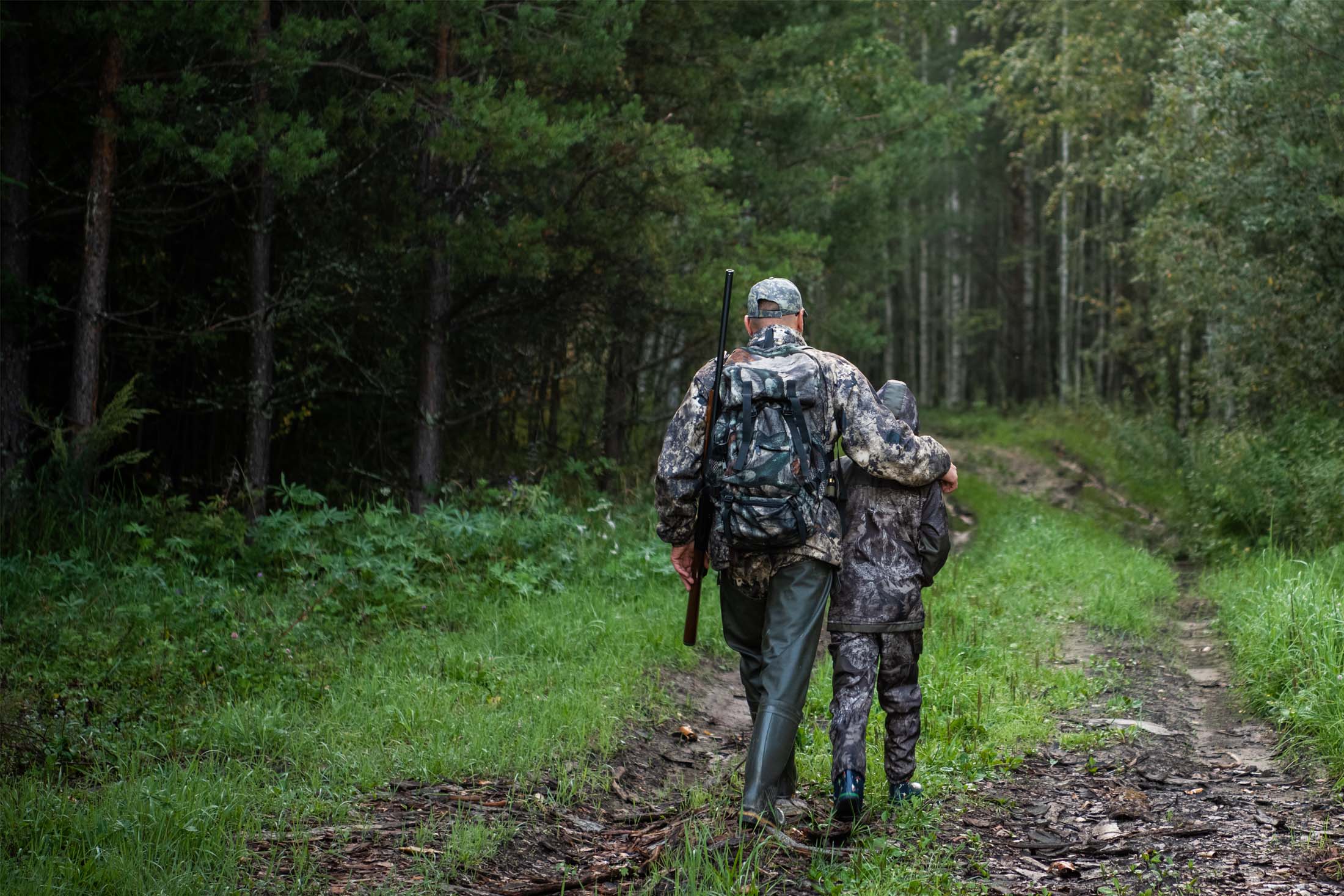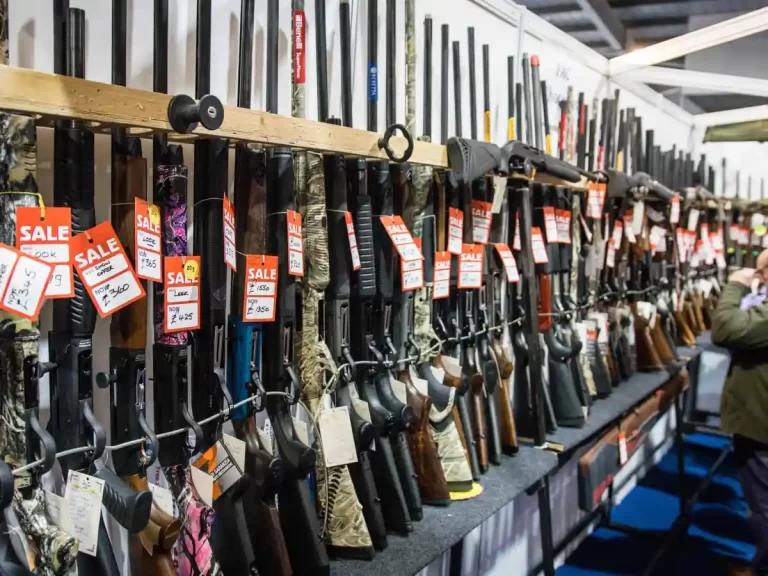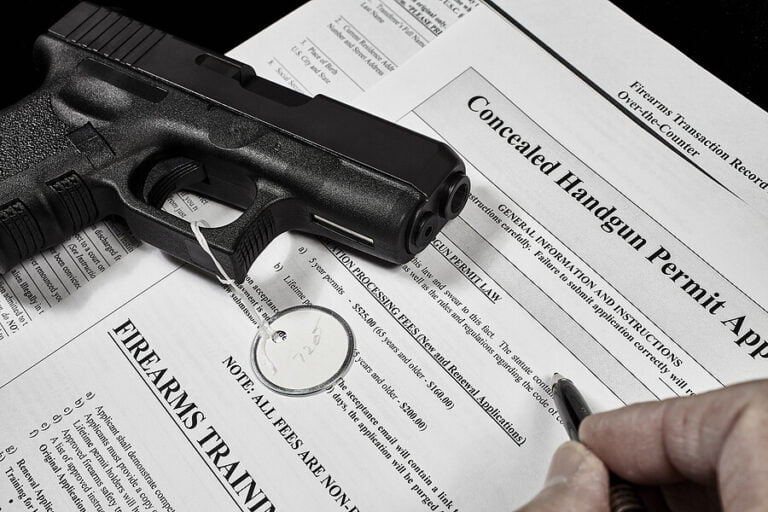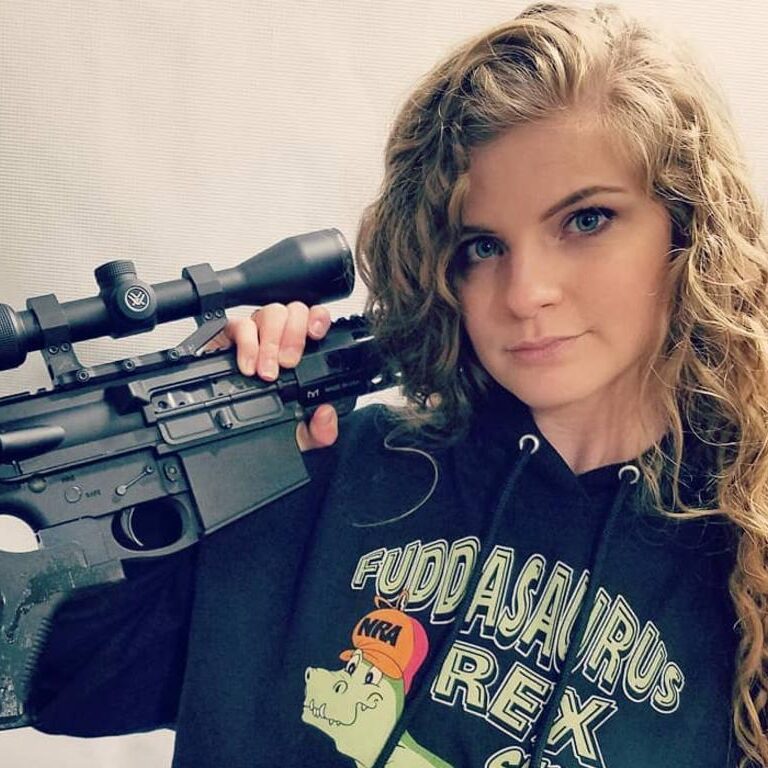North Carolina Hunting
North Carolina is a state known for its beautiful forested regions and rugged landscapes, making it an ideal destination for hunting enthusiasts. The state offers a variety of games, including deer, turkeys, black bears, waterfowl, predators, and other small game animals.
To ensure a safe and enjoyable hunting experience, hunters in North Carolina must adhere to various regulations imposed by federal, state, and local authorities. In this article, we will explore the hunting regulations in North Carolina, including firearm regulations, bow hunting regulations, bag limit rules, and more.
Firearm Hunting Regulations
Firearm Possession Near Buildings
Hunters must not possess a loaded firearm, hunt wildlife, or discharge a firearm within 500 feet of buildings containing humans, domestic animals, or combustible substances. However, exceptions are allowed with the owner’s permission or for archery hunting.
Possession of Hunting Firearms in Vehicles
Loaded firearms are prohibited in vehicles, except for registered handguns and revolvers, which are allowed.
Use of Rifles and Handguns for Hunting
Hunting with rifles, revolvers, or handguns using a .22 or larger ammunition is not permitted in North Carolina, except for specific hunting areas. It is also illegal to hunt waterfowl, turkeys, and migratory birds with handguns and rifles, except for crows.
Hunting with Shotguns
Shotguns with more than 2 shots are not allowed in certain leased or private hunting areas. The use of lead shots for waterfowl hunting is also prohibited, but shotguns with less than 10 gauge are allowed. Specific regulations apply to turkey, crow, and deer hunting.
Hunting with Muzzleloaders
Muzzleloaders with at least .45 calibers are allowed in North Carolina, except for smoothbore muzzleloaders. Muzzleloading rifles with .36 calibers and round ball ammunition are permitted on state-owned lands.
Bow Hunting Regulations
Bowhunter Education
Before hunting with a bow and arrow, hunters must complete a bowhunter education course. Proof of completion is required for hunting small games.
Lawful Bow and Arrows
Only longbows, compound bows, and recurved bows with a draw weight of at least 40 pounds are allowed for deer and turkey hunting. Using projectiles coated with chemicals, poison, or drugs is prohibited.
Crossbows
Crossbows with a draw weight of at least 125 pounds, a permanently fixed rifle, and an automated safety device are legal for hunting. Adjustable crossbow sticks are allowed, but folding stocks may not be adjustable. Arrows for deer and turkey hunting should have a minimum of 2 blades and be 8 inches wide.
Possession of Firearms for Bowhunting
It is prohibited to carry a firearm while bow hunting.
Bag Limit Regulation
Daily Bag Limit
The daily bag limit is the maximum number of game species a hunter can take within a day, from 12 am to 12 am the next day.
Possession in Storage
Seasonal bag limits are enforced for non-migratory wildlife and game species stored during the season. For migratory games, possession in storage limits follows federal hunting laws.
Season Bag Limit
The season bag limit specifies the number of wildlife and games that can be taken during the open season.
Hunter Harassment Law
North Carolina has hunter harassment laws to protect legal hunting activities. Interfering with hunting practices or disturbing wildlife intentionally is considered a violation.
North Carolina Hunting Licenses, Permits, and Tags
To hunt in North Carolina, hunters must obtain the appropriate licenses, permits, and tags. The following are some of the licenses available for residents and non-residents:
- Firearms Hunting License
- Firearms Hunting and Inland Fishing License
- Firearms Hunting and All Waters Fishing License
- Firearms Hunting and Marine Water Fishing License
- Archery Deer and Small Games Hunting License
- Archery Deer and Small Games Hunting License Plus All Water Fishing License
- Trapping License
- Junior Firearm Hunting License (ages 12-15)
- Junior Archery Deer and Small Game License (ages 12-15)
- Junior Trapping License (under 15)
- Annual Hunting License (for residents 65 years old or older)
- Annual Trapping License (for residents 65 years old or more)
- Resident All Water Fishing License
- Residents’ Inland Fishing License
- Residents Inland Fishing and Small Game Hunting License
- Non-Residents Season Inland Fishing License
- Nonresident Season All Waters Fishing License
- Nonresidents 3 Days Inland Fishing License
- Residents Marine Water Fishing License
- Residents One Day Marine Water Fishing License
- Residents Marine Water Fishing and Firearm Hunting License
- Nonresident Marine Fishing License
- Nonresidents Marine Water Fishing and Firearms Hunting License
- Nonresidents Three Days Marine Fishing License
- Armed Forces Marine Water Fishing License
- Armed Forces Inland Fishing Permit
- Armed Forces Inland Fishing Permit with Small Game Firearms Hunting
- Armed Forces All Water Permit
North Carolina Hunting Season 2022/2023
The 2020/21 hunting season in North Carolina includes various dates for hunting different game species. Some of the key seasons are as follows:
- North Carolina Deer Hunting Season
- Archery Season (15th September – 31st December)
- Shotgun and Rifle Season (Public Land: 18th November – 8th December, Private Lands: 2nd November – 31st December)
- Muzzleloader Season (Private Land: 9th December – 31st December, State Lands: 9th December – 22nd December)
- North Carolina Turkey Hunting Season
- Fall Archery Season (15th September – 31st September)
- Fall Firearm Season (3rd October – 31st October)
- North Carolina Black Bear Hunting Season
- General Hunting Season (12th October – 1st January)
- North Carolina Small Games Hunting Season
- Cotton Rabbit Season (19th October – 31st December)
- Squirrel Season (1st September – 31st December)
- Quail Season (17th October – 2nd November)
- Pheasant Season (17th October – 31st December)
- Grouse Season (17th October – 30th December)
Please note that specific season dates may vary based on the hunting zones in North Carolina.
North Carolina Wildlife, Game, and Fish
North Carolina offers diverse wildlife and game species for hunting enthusiasts:
- North Carolina Deer Hunting: Whitetail deer hunting is common, and deer horns serve as trophies. Venison from deer meat is a delicacy.
- North Carolina Turkey Hunting: Turkey hunting is challenging as these birds blend well with their surroundings.
- North Carolina Duck and Goose Hunting: Duck hunting is lively, and geese are abundant in the state.
- North Carolina Pheasant and Quail Hunting: Pheasants and quails are found in various regions of the state and are challenging to hunt.
- North Carolina Grouse Hunting: Grouse inhabit wooded areas and pose a challenge for hunters due to their camouflage.
- North Carolina Black Bear Hunting: Black bear hunting takes place in southern parts of the Appalachian Mountains and swampy regions.
North Carolina Shooting Ranges
Public shooting ranges in North Carolina include:
- Dare County Shooting Complex / Outer Banks Gun Club
- DeWitt’s Outdoor Sports, LLC
- Duncan Gun Shop
- Archery Barn
- Flatwoods Outfitters
- Gastonia Parks & Rec. Skeet & Trap Range
- Hunters Pointe Sporting Clays
- Wake County Firearms Education and Training Center
North Carolina Hunting Land for Sale and Lease
Hunting lands for sale and lease in North Carolina offer various opportunities for hunters. Some available lands include:
- Lake Lure, North Carolina (Rutherford County), 5.4 acres
- Rockingham, North Carolina (Richmond County), 308.81 acres
- Mars Hill, North Carolina (Madison County), 1.8 acres
- Pittsboro, North Carolina (Chatham County), 10.04 acres
- Morganton, North Carolina (Burke County), 144.71 acres
Conclusion
North Carolina offers an exceptional hunting experience with its diverse wildlife, beautiful landscapes, and carefully regulated hunting practices. As a responsible hunter, make sure to adhere to all hunting regulations, obtain the required licenses and permits, and respect the wildlife and environment during your hunting adventures.
FAQs;
Q1. What are the common games for hunting in North Carolina?
Common games for hunting in North Carolina include deer, turkeys, black bears, waterfowl, predators, and other small game animals.
Q2. Are there specific regulations for firearm possession while hunting in North Carolina?
Yes, North Carolina has regulations concerning the possession and use of firearms while hunting. Hunters should be aware of the rules related to firearm possession near buildings and in vehicles.
Q3. What are the regulations for bow hunting in North Carolina?
Bow hunters must complete a bowhunter education course, use lawful bows and arrows, and follow specific regulations for crossbows and arrows during hunting.
Q4. What are the bag limit regulations in North Carolina?
The bag limit regulations specify the maximum number of game species a hunter can take within a day, possession in storage limits, and the season bag limit.
Q5. Are there any hunter harassment laws in North Carolina?
Yes, North Carolina has hunter harassment laws to protect legal hunting activities from interference or disturbances.







